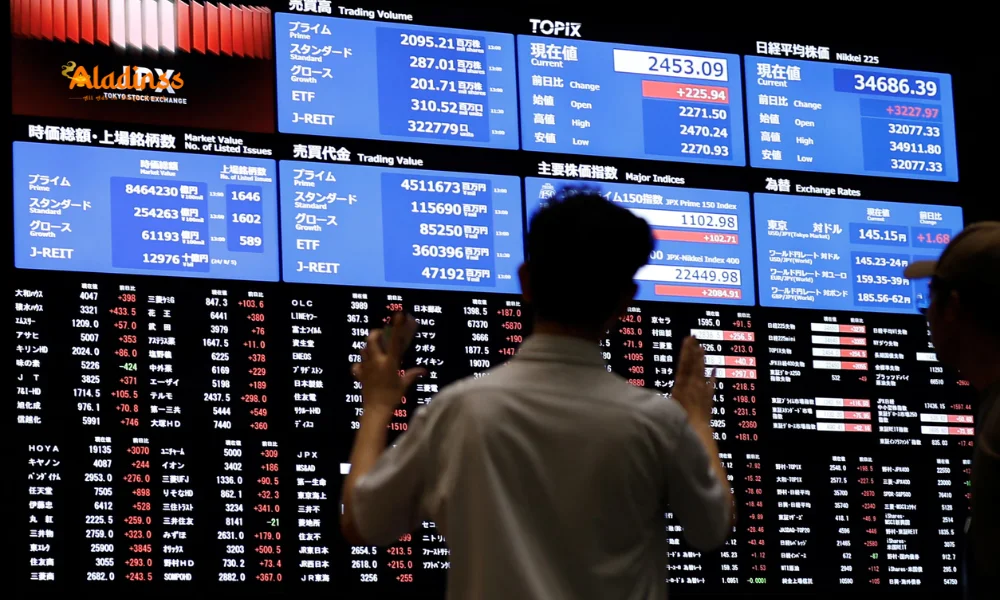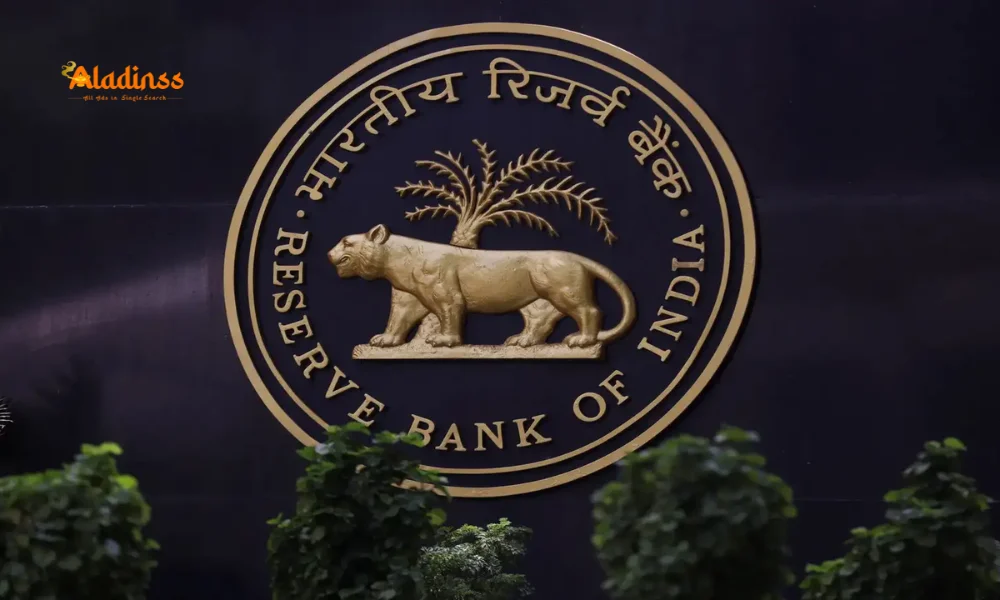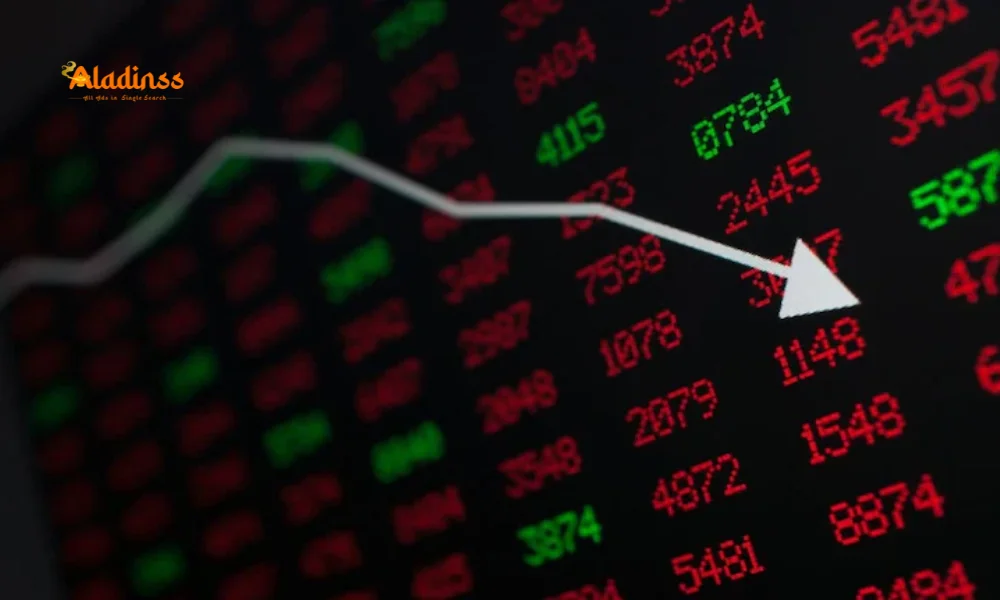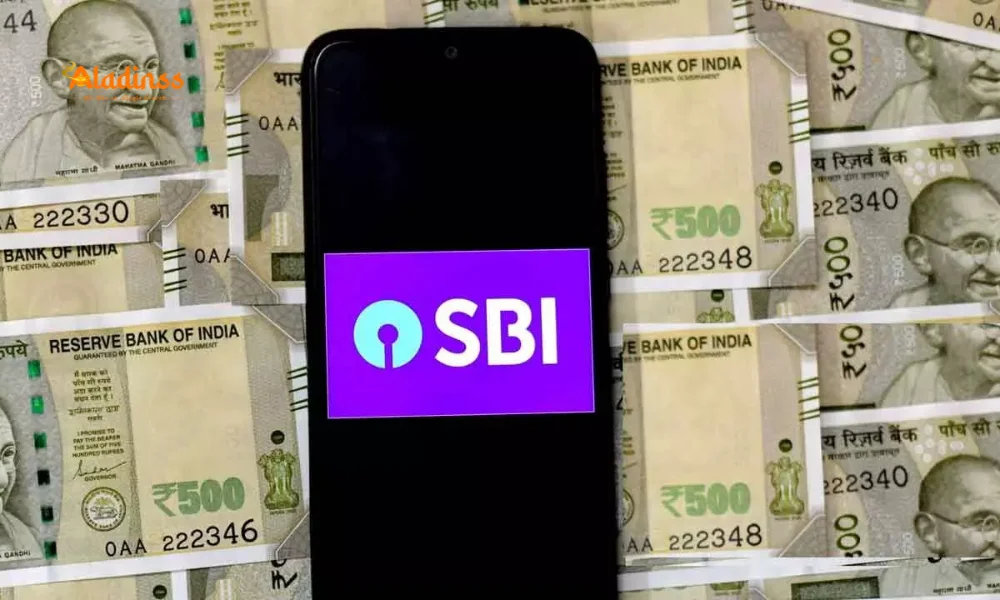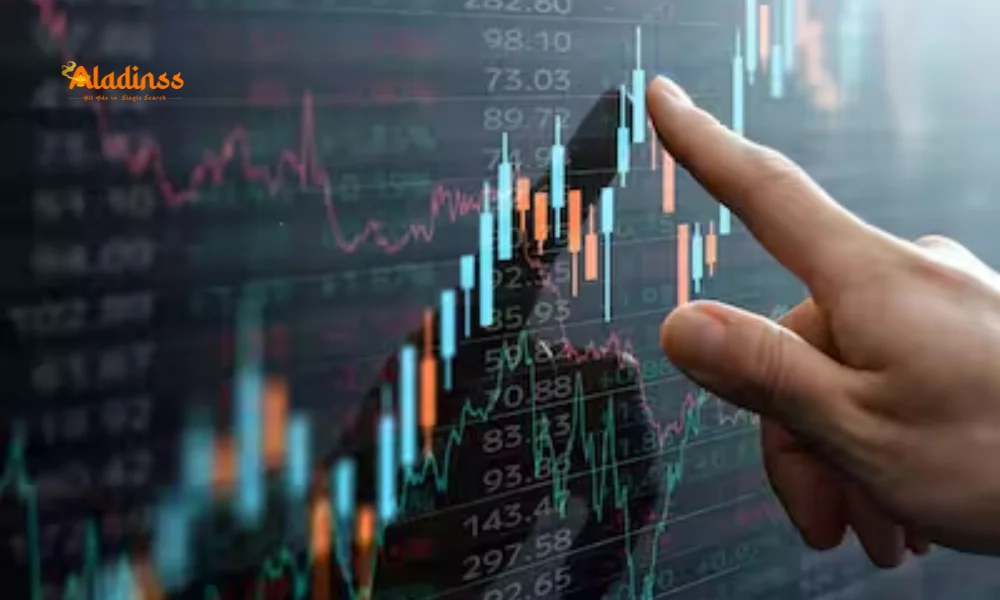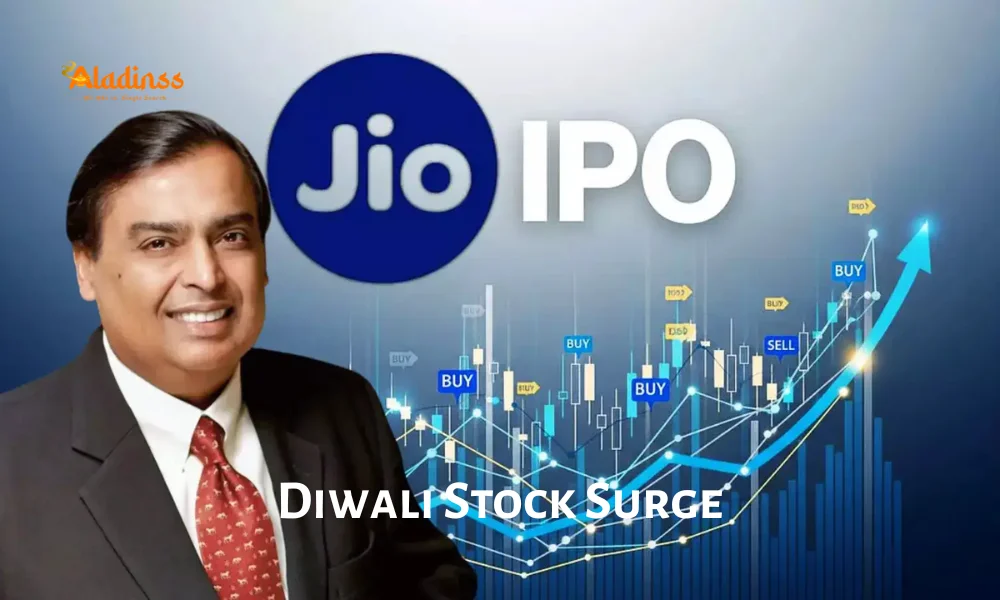KOSPI Surges to Record High Ahead of Crucial U.S. Trade Talks
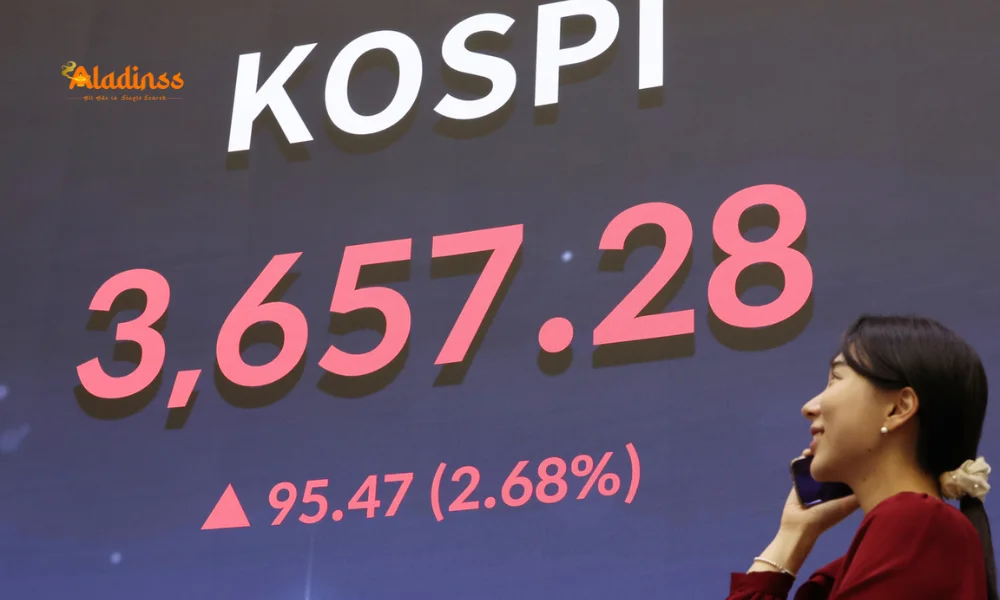
South Korean Stocks Soar to Record High Before U.S. Trade Talks
South Korea’s benchmark KOSPI index surged to a record high on October 22, 2025, driven by strong performances in the automotive and shipbuilding sectors. The index climbed 59.84 points, or 1.56%, closing at 3,883.68, marking its sixth consecutive day of gains. This rally comes as South Korean officials prepare for critical trade negotiations in Washington, aiming to secure a tariff deal. Despite early losses, the market’s resilience highlights optimism surrounding the South Korean stock market and its key industries.
The Korean won also strengthened slightly against the dollar, while bond yields dipped, reflecting a dynamic financial landscape. This article explores the factors behind the KOSPI’s record performance, key sector gains, and the broader implications for South Korea’s economy.
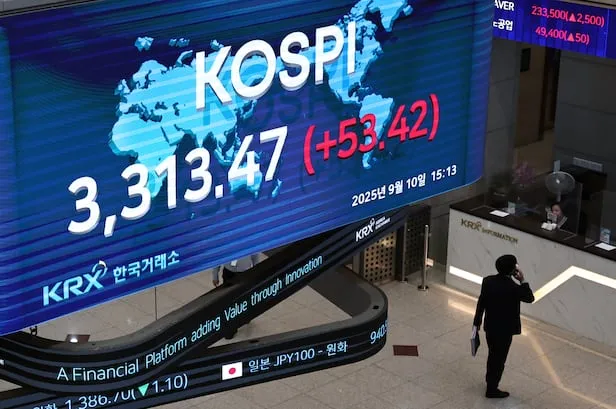
KOSPI’s Record-Breaking Performance
The KOSPI index’s climb to 3,883.68 represents a significant milestone for the South Korean stock market. After an initial dip of 0.77% earlier in the session, the index rebounded, fueled by robust gains in key sectors. Analyst Huh Jae-hwan from Eugene Investment Securities noted that the KOSPI outperformed global markets, driven by optimism around ongoing trade negotiations and strong domestic industry performance.
The rally marks the sixth straight day of gains, underscoring investor confidence despite uncertainties in the global economic landscape. The upcoming trade talks in Washington are seen as a pivotal moment for South Korea’s export-driven economy, particularly for industries like automotive and shipbuilding.
Automakers and Shipbuilders Lead the Charge
The automotive and shipbuilding sectors were key drivers of the KOSPI’s record high. Hyundai Motor rose 1.75%, while its sister company, Kia Corp, gained 1.99%, reflecting strong investor confidence in South Korea’s automotive giants. These companies have benefited from growing global demand for electric vehicles and innovative automotive technologies.
In the shipbuilding sector, Hanwha Ocean surged nearly 10%, reaching its highest level in over a decade. HD Hyundai Heavy Industries also climbed 3.2%, bolstered by South Korea’s trade minister’s call for the swift removal of sanctions on Hanwha Ocean’s U.S. subsidiaries. These gains highlight the sector’s critical role in South Korea’s economic growth.
Battery Sector Shines with LG Chem’s Surge
The battery industry also contributed to the KOSPI’s upward momentum. LG Chem, a leading battery materials manufacturer, soared 13%, marking its largest daily gain in over five years. This rally followed a push by Palliser Capital to enhance shareholder value, boosting investor optimism. Similarly, LG Energy Solution, another key player in the battery sector, saw a 4% increase in its share price.
The strong performance of battery-related stocks reflects South Korea’s growing influence in the global electric vehicle and renewable energy markets, positioning the country as a leader in cutting-edge technologies.
Korean Won Strengthens, Bond Yields Dip
The Korean won appreciated slightly, closing at 1,429.8 per dollar, a 0.15% gain from its previous close of 1,432.0. This strengthening reflects cautious optimism in the foreign exchange market as investors monitor the upcoming trade talks. Meanwhile, South Korea’s benchmark bond yields declined, with the three-year treasury bond yield dropping 2.5 basis points to 2.583% and the 10-year yield falling 2.1 basis points to 2.882%.
These movements suggest a cautious market response to global economic uncertainties, with investors balancing the potential outcomes of trade negotiations and domestic monetary policy decisions.
Foreign Investors as Net Sellers
Despite the KOSPI’s record performance, foreign investors were net sellers, offloading shares worth 724.9 billion won. This selling pressure highlights a divergence in sentiment, with domestic investors driving the market’s gains while foreign investors remain cautious ahead of the U.S. trade talks and the Bank of Korea’s interest rate decision.
The Bank of Korea is expected to maintain its key interest rate on October 23, 2025, for the third consecutive meeting, according to a Reuters poll. This decision could influence investor confidence and market dynamics in the coming days.
Trade Talks and Economic Implications
The upcoming trade negotiations in Washington are a focal point for South Korea’s financial markets. Senior officials are aiming to finalize a tariff deal before an Asia-Pacific summit later in October 2025. A successful outcome could bolster South Korea’s export-driven industries, particularly automakers and shipbuilders, which rely heavily on international trade.
South Korea’s trade minister, Yeo Han-koo, has emphasized the need for swift resolution of sanctions affecting Hanwha Ocean’s U.S. operations, highlighting the importance of these talks for maintaining economic momentum. A favorable deal could further strengthen investor confidence and support the KOSPI’s upward trajectory.
South Korea’s Economic Outlook
South Korea’s economy is closely tied to its export sectors, with automakers, shipbuilders, and battery manufacturers playing a pivotal role. The KOSPI’s record high reflects optimism about the country’s ability to navigate global trade challenges and maintain its competitive edge in key industries. However, uncertainties surrounding global economic conditions and foreign exchange fluctuations remain concerns for investors.
The Bank of Korea’s steady interest rate policy is expected to provide stability, but any shifts in global monetary policies could impact the won and bond yields. Investors are advised to monitor developments closely, particularly the outcome of the U.S. trade talks.
Sector-Specific Growth Drivers
The automotive sector’s gains are driven by strong global demand for South Korean vehicles, particularly electric and hybrid models. Hyundai Motor and Kia Corp have invested heavily in innovation, positioning themselves as leaders in the global EV market. Their stock performance reflects investor confidence in their long-term growth potential.
Similarly, the shipbuilding industry’s rally is fueled by increasing global demand for vessels, particularly in the context of rising trade and energy needs. Hanwha Ocean’s significant surge underscores its strategic importance to South Korea’s industrial landscape.
Battery Industry’s Strategic Importance
The battery sector’s performance, led by LG Chem and LG Energy Solution, highlights South Korea’s pivotal role in the global energy transition. As demand for electric vehicles and renewable energy storage grows, these companies are well-positioned to capitalize on market opportunities. Palliser Capital’s push for shareholder value enhancements has further boosted investor interest, driving significant stock gains.
The battery industry’s growth is a testament to South Korea’s innovation-driven economy, with companies investing in research and development to maintain a competitive edge in the global market.
Market Sentiment and Future Outlook
The KOSPI’s record high reflects a blend of domestic optimism and cautious global sentiment. While foreign investors sold off shares, domestic investors drove the rally, signaling confidence in South Korea’s economic resilience. The outcome of the trade talks and the Bank of Korea’s interest rate decision will be critical in shaping market sentiment in the near term.
Looking ahead, South Korea’s financial markets are poised for continued growth, provided trade negotiations yield positive results. Investors should remain vigilant, monitoring global economic trends and domestic policy developments to navigate potential volatility.
Comment / Reply From
No comments yet. Be the first to comment!

